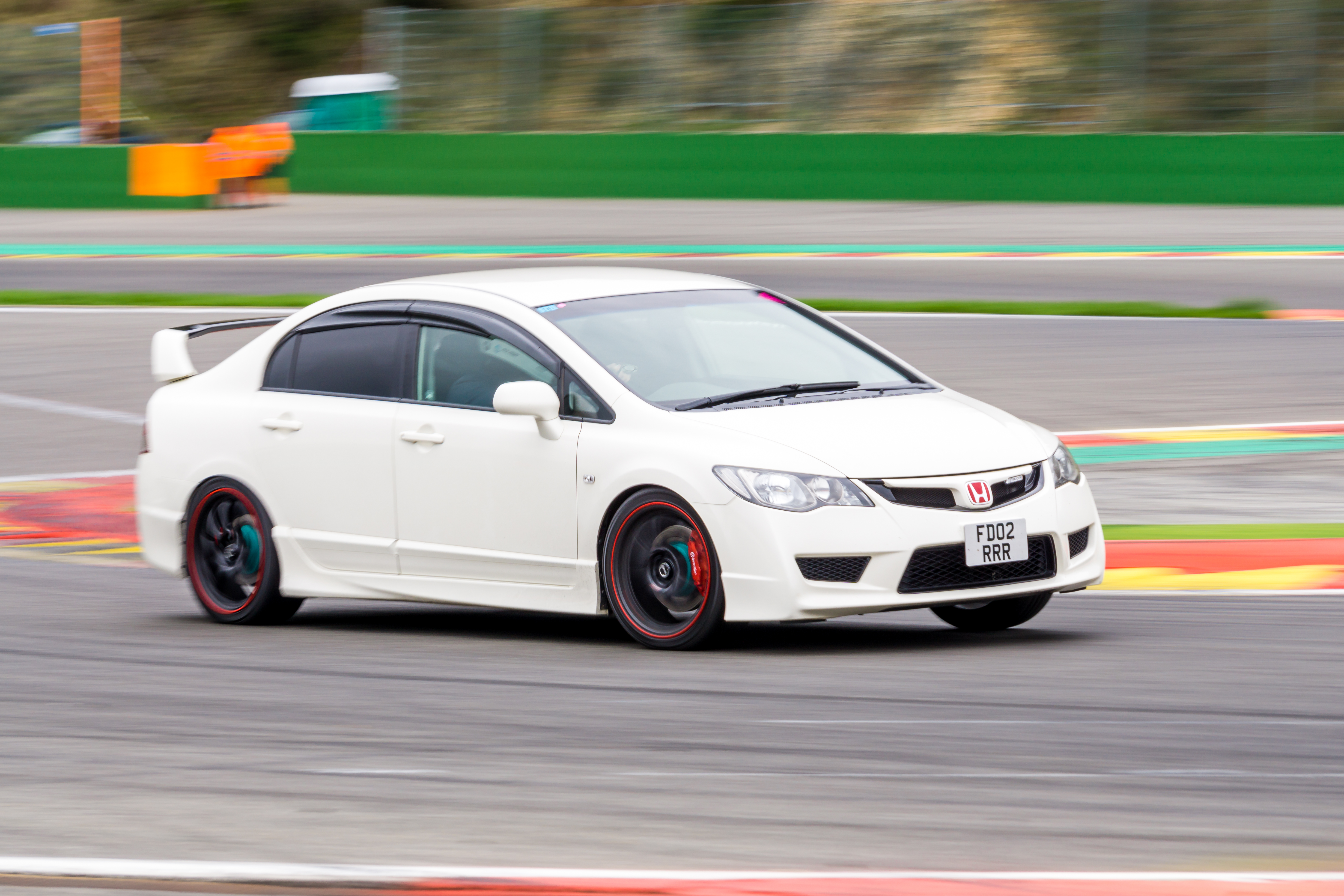
Split Personality: The FD2/FN2 Civic Type R (2007-2011)
The Tale of Two Type Rs
For the first time in Type R history, Honda created two completely different Civic Type R models simultaneously: the four-door FD2 for Japan and the three-door FN2 for Europe. This split-personality approach has sparked endless debates among enthusiasts about which is the “true” Type R of this generation.
FD2: The Four-Door Samurai
The Japanese market FD2 was everything a Type R enthusiast could dream of:
- K20A Engine: A screaming 225hp naturally-aspirated masterpiece
- 8,600 RPM redline: Just shy of motorcycle territory
- Four-door sedan body: Practical sleeper looks with a racing heart
- Advanced chassis: Double-wishbone front suspension for razor-sharp handling
- Weight: A relatively svelte 1,260kg (2,777 lbs)
- 0-60 mph: Around 6.3 seconds – not headline-grabbing, but deceptively quick
The FD2 set a Nürburgring lap time of 8:16.84 – impressive for a naturally aspirated sedan in 2007 and faster than many sports cars of its era.
FN2: The Hot Hatch Spaceship
Meanwhile, Europeans got something completely different:
- K20Z4 Engine: 198hp of naturally aspirated fun
- 8,000 RPM redline: Still thrilling, if not quite as manic as its Japanese cousin
- Futuristic styling: That triangle exhaust and spaceship dashboard were pure concept car vibes
- Torsion beam rear suspension: A controversial departure from Honda’s sophisticated double-wishbone setups
- Weight: A heftier 1,345kg (2,965 lbs)
- 0-60 mph: Around 6.6 seconds – quick enough to embarrass many supposed sports cars
The Great Debate: Which One is Better?
This is where Type R fans get into heated arguments at car meets. The FD2 is the purist’s choice:
- More power
- More sophisticated suspension
- Lower weight
- Better track performance
But the FN2 has its defenders:
- More unique styling that screams “special”
- Rarer in many markets (particularly as a UK-built Honda)
- More practical hatchback design
- Better suited to real-world European roads with its slightly softer setup
The Special Editions
Both versions received special editions that are now highly sought after:
FD2 Type R Euro R: Even more focused track weapon with additional chassis bracing FN2 Championship Edition: Commemorating Honda’s F1 success with special white paint and red interior FN2 Mugen: Limited-run version with 237hp, specialized suspension, and aggressive aero
Living With Them Today
In 2025, these Type Rs are becoming modern classics:
The FD2 is the investment choice, with pristine examples commanding strong prices and likely to appreciate as naturally-aspirated performance cars become increasingly rare.
The FN2 remains the more affordable entry into Type R ownership, offering 90% of the experience at 70% of the price. Its futuristic styling has aged surprisingly well – what looked alien in 2007 now looks purposeful and distinctive.
The Cultural Impact
What makes this generation special is how it reflected Honda’s understanding of regional differences:
- The JDM FD2: Track-focused precision for Japan’s circuit-obsessed enthusiasts
- The Euro FN2: Style-conscious hot hatch for Europe’s design-sensitive buyers
Both were unmistakably Type Rs, but Honda wisely recognized that “one size fits all” doesn’t always work in performance cars.
The FD2/FN2 generation represents the last of the naturally-aspirated Civic Type Rs. The high-revving, VTEC-screaming era was coming to a close, making these cars the final chapter in what many consider Honda’s golden age of engineering.
Whether you prefer the razor-sharp FD2 or the style-conscious FN2, both offer an increasingly rare driving experience: raw, mechanical, and utterly involving—without a turbocharger in sight.